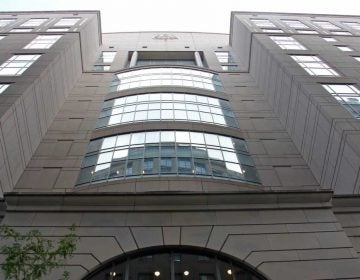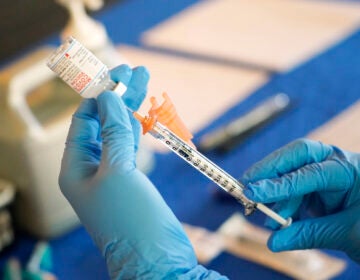Philly pharmacies reeling, rebuilding after more than a third were looted
For independent pharmacies already struggling to compete with large chains, losses incurred by looting could force them to close in the weeks or months ahead.
Listen 1:53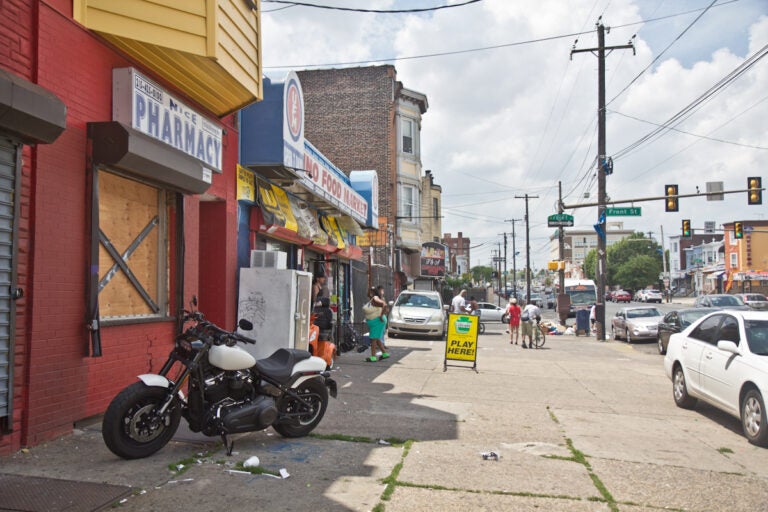
Nice pharmacy on the 100 E block of Allegheny Avenue in Kensington. (Kimberly Paynter/WHYY)
In 36 years working as a pharmacist on the corner of Front and Allegheny in Kensington, Randal Policare has been robbed about five times.
This time was different.
“They took delivery totes and our garbage cans and just did sweeps of medications,” said Policare, owner of Nice Pharmacy, as he stepped around contractors fixing his damaged security system Wednesday. “It was total destruction.”
His shop was robbed Sunday, May 31, one of hundreds of businesses looted that weekend in Philadelphia in the unrest that followed the police killing of George Floyd, an unarmed Black man and father of two in Minneapolis.
While much of that looting — which devastated parts of Center City, West, and North Philadelphia — was seemingly spontaneous, city officials haven’t offered a detailed explanation of who was responsible for the destruction and how, if at all, instances were connected to the largely peaceful protests against police brutality.
Policare and a few other pharmacists contacted by WHYY feel that they were the victim of premeditated raids.
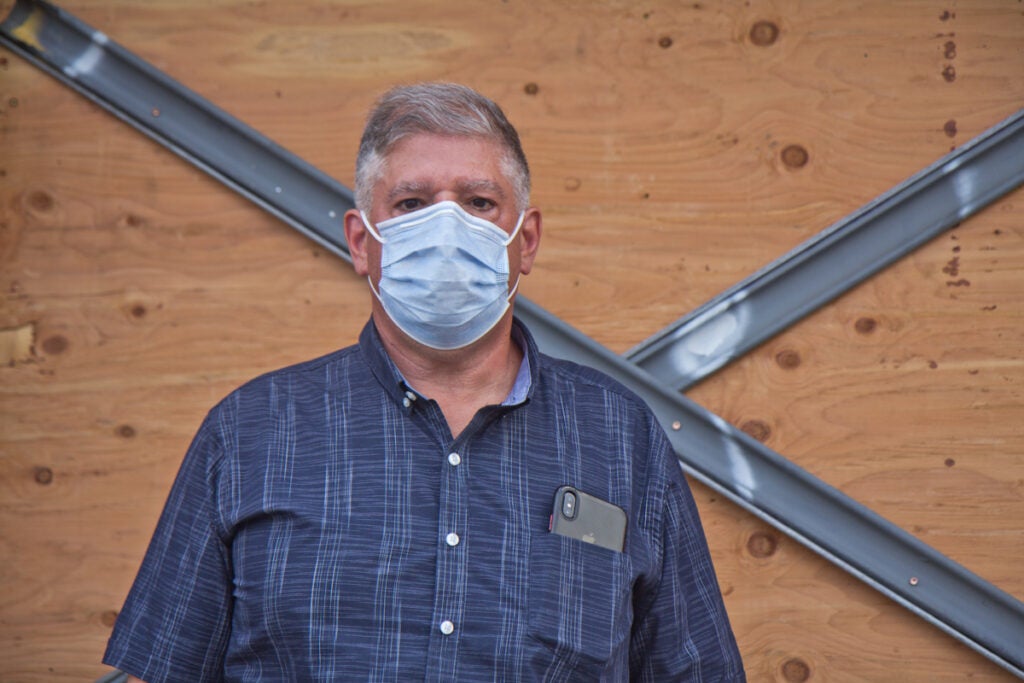
Policare said the robbers cleaned out his insulin, an expensive drug that hadn’t been touched in previous burglaries.
“Why would you go through the trouble, if you are robbing a pharmacy, to steal insulin, unless you knew you could get rid of that?” he said.
Officials in the Philadelphia Police Department and the Drug Enforcement Agency could not confirm if the attacks were strategically planned.
Policare said robbers also made off with $7,000 worth of medicine waiting for customer pick-up, and $16,000 worth of narcotics.
Philadelphia’s pharmacy industry was one of the hardest hit by the looting: more than a third of the city’s 476 retail pharmacies were looted, according to the DEA.
Robbers stole thousands of dollars worth of prescription drugs, including what the agency characterizes as a substantial amount of narcotics, which police now fear will soon make their way to the city’s illegal drug market.
Most of those pharmacies are reopening, but slowly. Nice Pharmacy, which only closed for a day, has been doing brisk business serving displaced customers of a Rite Aid a few blocks away, still offline as of Thursday.
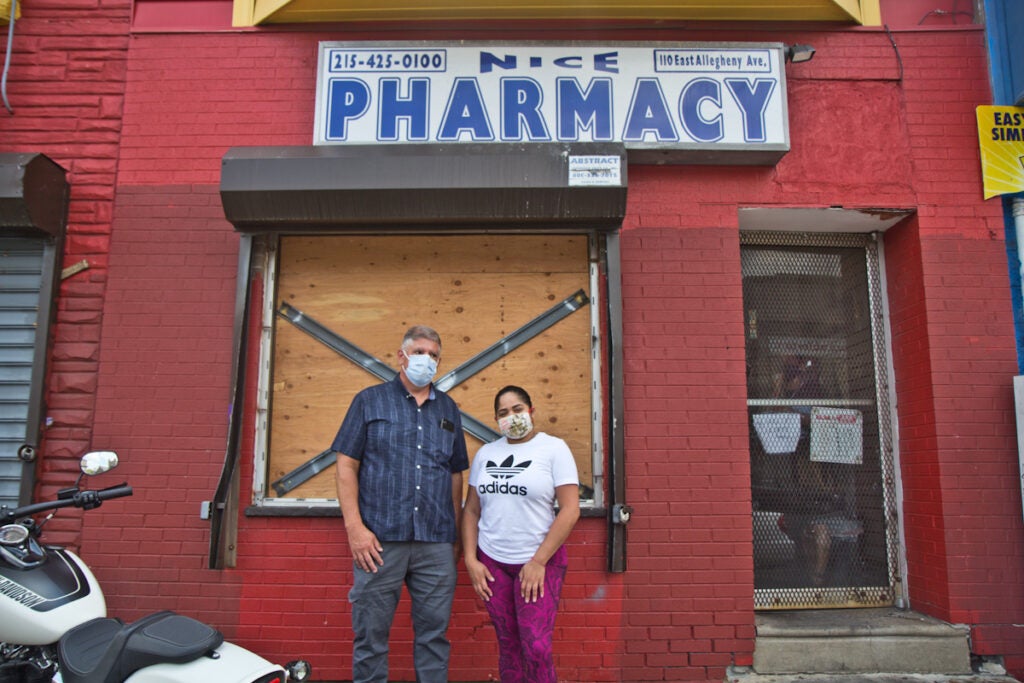
Still, industry experts warn that for independent pharmacies, already struggling to compete with large chains and dealing with the costs of safety gear required by the coronavirus pandemic, losses incurred by looting could force them to close in the weeks or months ahead.
“Those stores that were on the edge, this may be the culmination that closes them up,” said Mel Brodsky, executive director of the Philadelphia Association of Retail Druggists.
‘Smell of dampness and fire’
Pharmacies have been opening up at different speeds across the city, with some reopening shortly after the looting, while others continue to be boarded up and closed.
A website maintained and updated by the city listed 152 pharmacies that are currently open as of Thursday, though a city spokesperson said the list was not comprehensive.
As of Thursday, all but one of CVS’s sixty Philadelphia locations were open, while only six of Walgreens fourteen locations in the city were open. Seventy of Rite Aid’s seventy-nine locations had re-opened by Thursday.
Brodsky said three quarters of the 125 independent city pharmacies in his association have now reopened, with only a few saying they plan to close permanently — for now, at least.
He said all of his members have insurance, but he is worried that many won’t end up recouping their loss.
“Insurance companies, of course, are really good at collecting premiums,” Brodsky said. “But when it comes to paying out stores for their losses, they are very slow. We don’t know what to expect yet about how insurance companies will handle this.”
Some patients whose pharmacies were hit hard are still having a tough time getting prescriptions filled.
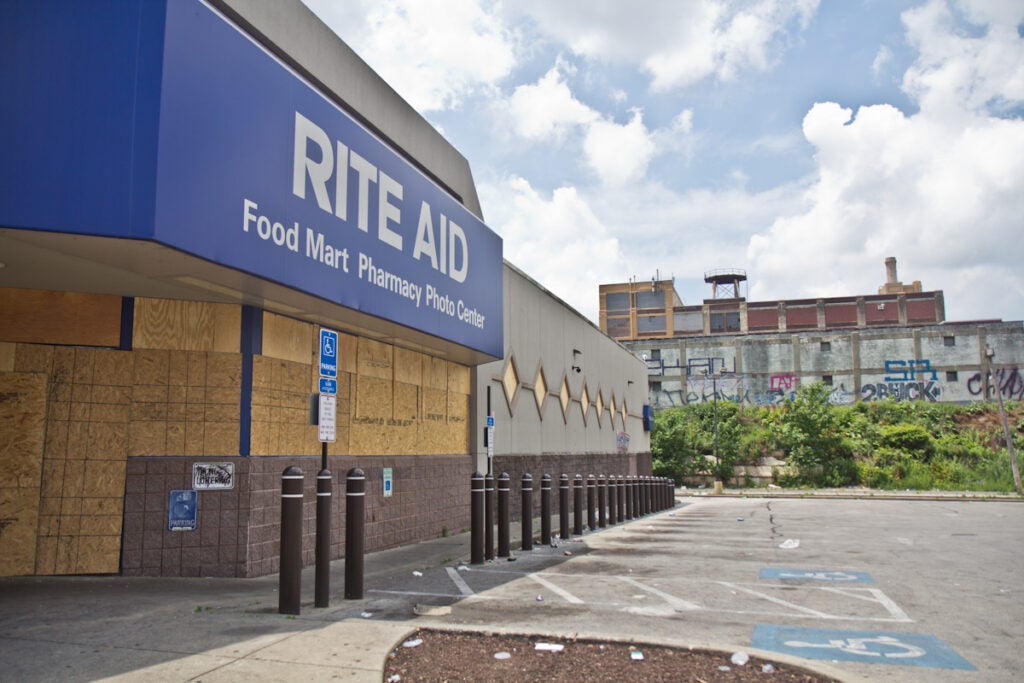
Kia Cooper, a 31-year-old Kensington native who recently moved to Norristown, has been going to a Rite Aid on Allegheny Avenue for fifteen years to pick up prescriptions and seek medical advice.
As of Wednesday, that store was still closed. Cooper said she has had trouble obtaining her medication. She recently drove to another Rite Aid location in Norristown only to be told they were out of the drug, and to return in two days.
“Now I call first to see if they have it,” she said. “It’s irritating.”
Workers at Sunray Drugs on 60th street in West Philadelphia have been scrambling to transfer their patients prescriptions to other Sunray locations, or have them delivered, since the pharmacy was looted and burned May 31.
“Unfortunately, there are a good amount of people that still are not able to get their medications,” said pharmacist Nick Shaiko.
Shaiko said it’s difficult for him to go to the burned-out storefront, where he’s worked for fifteen years. He’s not sure if it will ever reopen.
“It has that smell of dampness and fire,” he said. You will never get that smell out of your nose.”
‘There is no shortage of drugs on the street.’
Agents from the Philadelphia office of the DEA have spent the last week visiting pharmacies in an attempt to gauge losses, but they are struggling to get an accurate picture.
“In some of the pharmacies … their computer systems, which keep their audits, were also stolen,” said agent Patrick Trainor. “So we have pharmacies right now who are still trying to determine what they lost.”
Trainor declined to give a quantitative estimate of how many prescription drugs were stolen, but said most of the thirty or so pharmacies he has visited post-looting had their narcotic safes broken into or taken. He said drugs used to manage substance abuse, like buprenorphine and suboxone, were a popular target.
“We are aware of the pharmacy burglaries and understand the danger associated with the drugs being distributed on the street,” said Philadelphia Police spokesperson Eric McLaurin in an email.
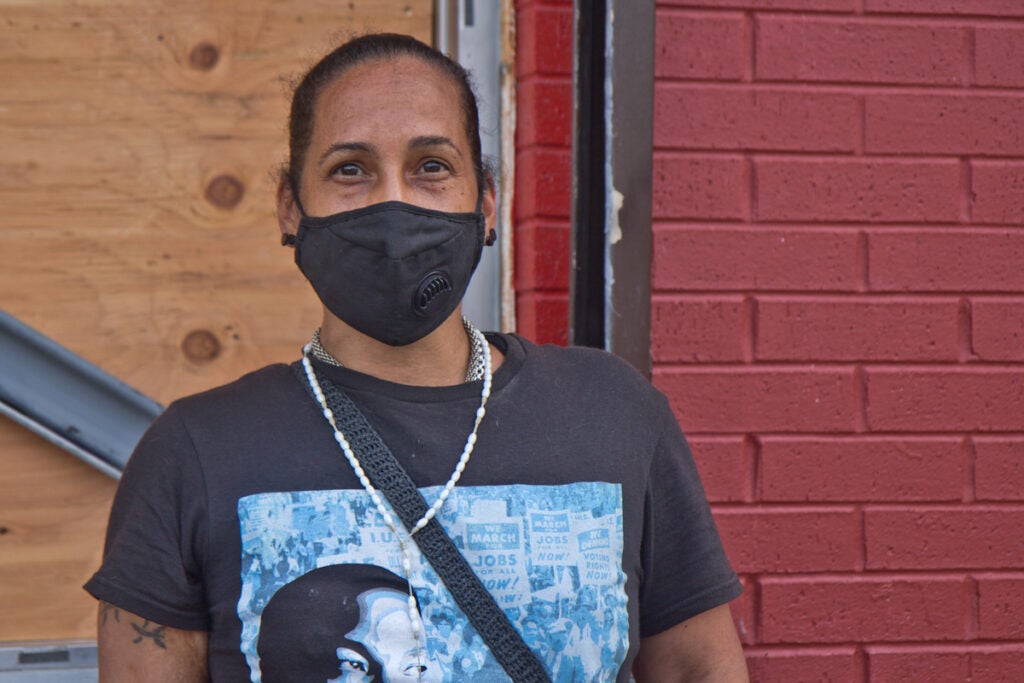
The looting is similar to what happened in Baltimore in 2015, following the police killing of Freddie Gray: a third of the city’s pharmacies were reportedly looted in the riots that followed.
Baltimore Police Commissioner Anthony Batts said at the time that, as a result, “there’s enough narcotics on the streets of Baltimore to keep it intoxicated for a year.” (The Baltimore Sun later pointed out that was a gross exaggeration.)
In Philadelphia, some drug policy experts were skeptical that an influx of prescription drugs into the city’s illegal drug market would have much of an effect.
“You know Philly, there is no shortage of drugs on the street,” said Leo Beletsky, a drug policy researcher and professor at Northeastern University.
Beletsky said an increase in the availability of prescription opioid drugs might even have a positive overall health effect, as it could cause people who use to switch from heroin or fentanyl, which are more powerful and therefore easier to overdose on.
“That could produce a net reduction in fatal overdoses,” Beletsky said.
‘They’re going to need a blowtorch’
After more than three decades on the corner of Front and Allegheny, Nice Pharmacy owner Randal Policare said he has no plans to leave. His customers depend on him, he said.
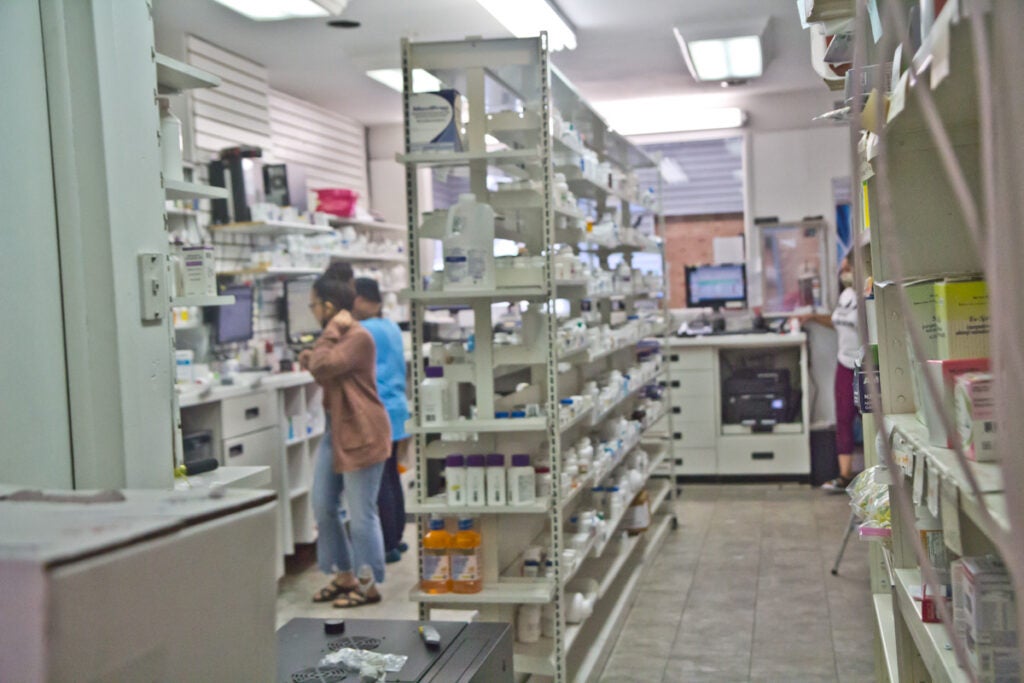
Still, he’s nervous about being robbed again.
Looters found a way to bend a thick steel rail that served as a track for the metal slats that had protected the gate of his store, something he thought was impossible.
Now Policare plans to add another metal bar running across the gate.
“[If they come back], they’re going to need a blowtorch,” he said.

Get daily updates from WHYY News!
WHYY is your source for fact-based, in-depth journalism and information. As a nonprofit organization, we rely on financial support from readers like you. Please give today.


